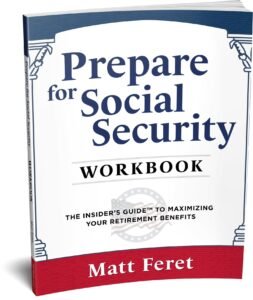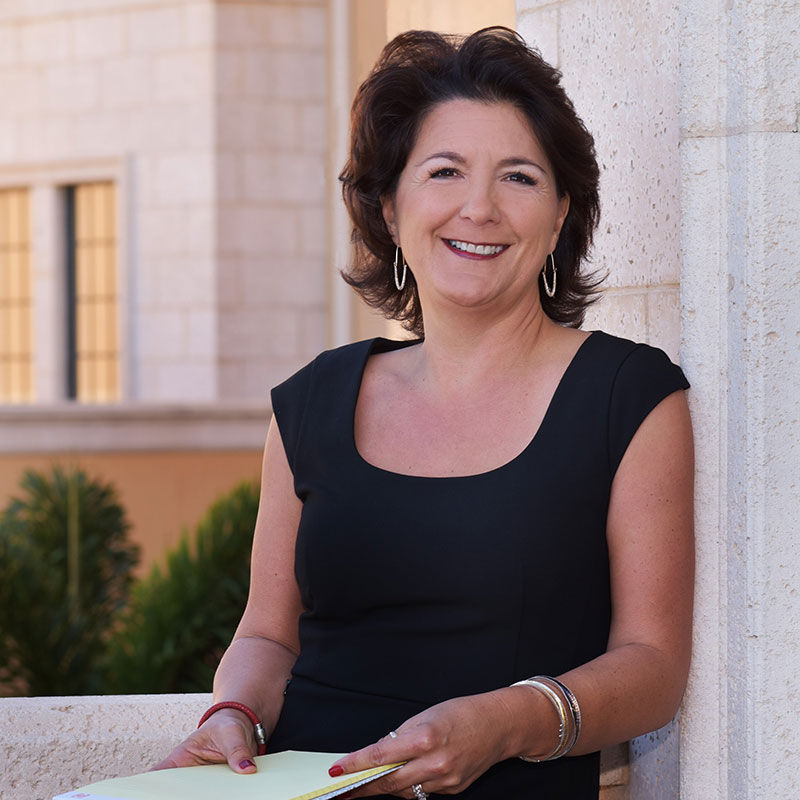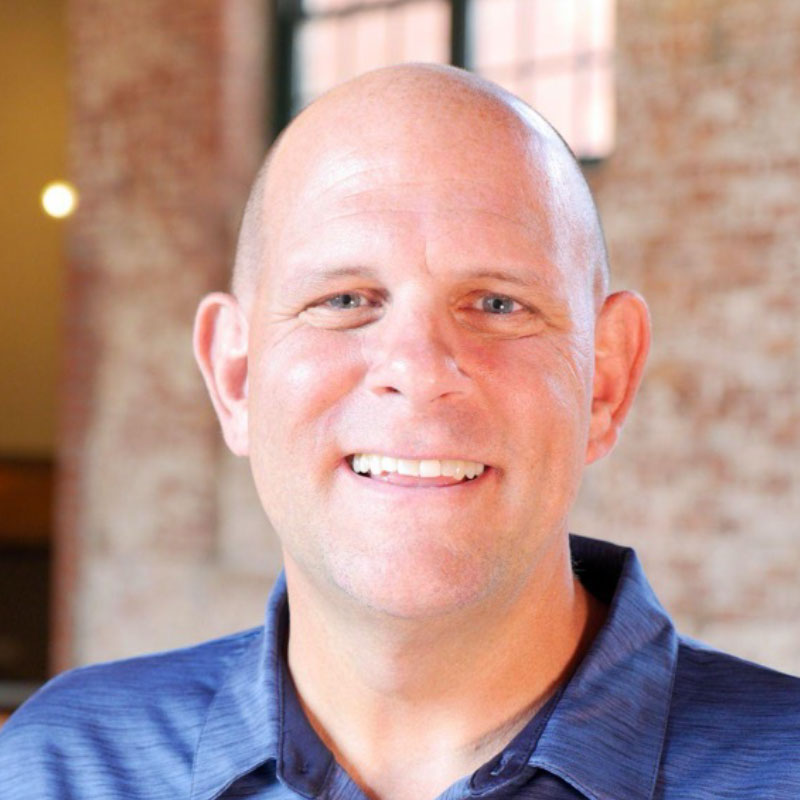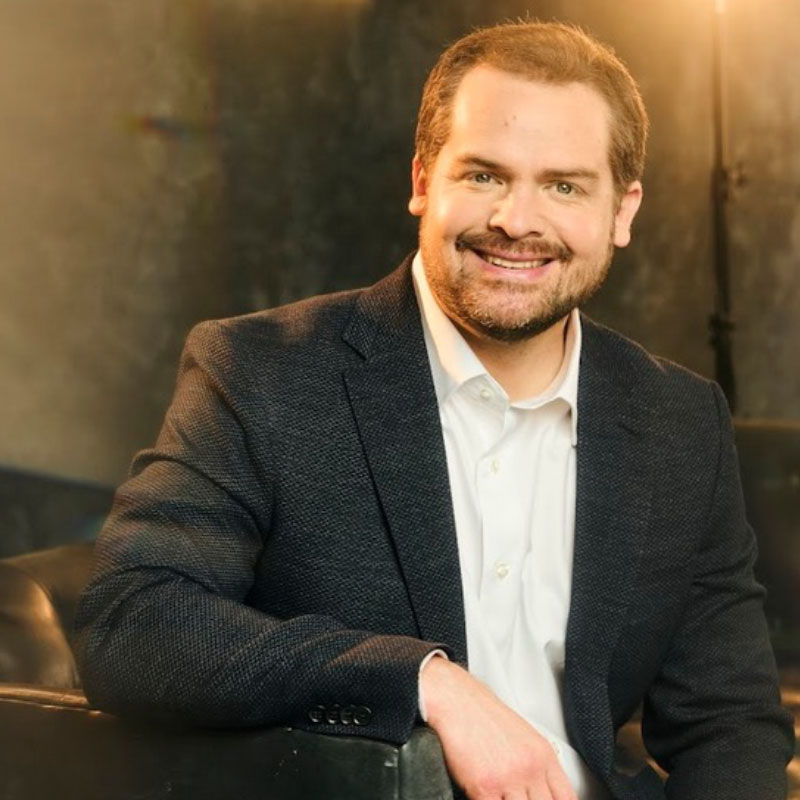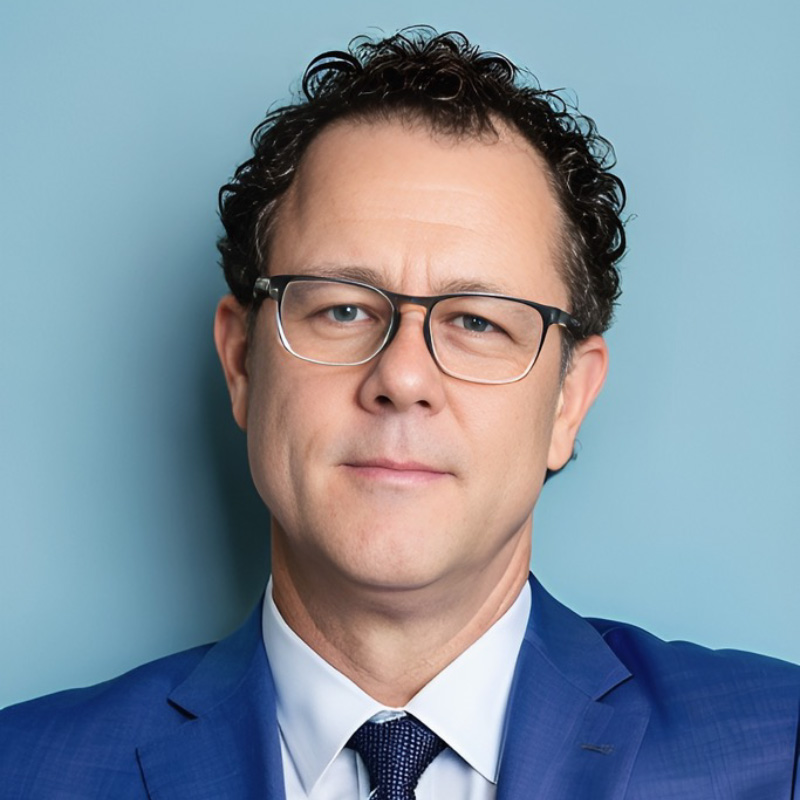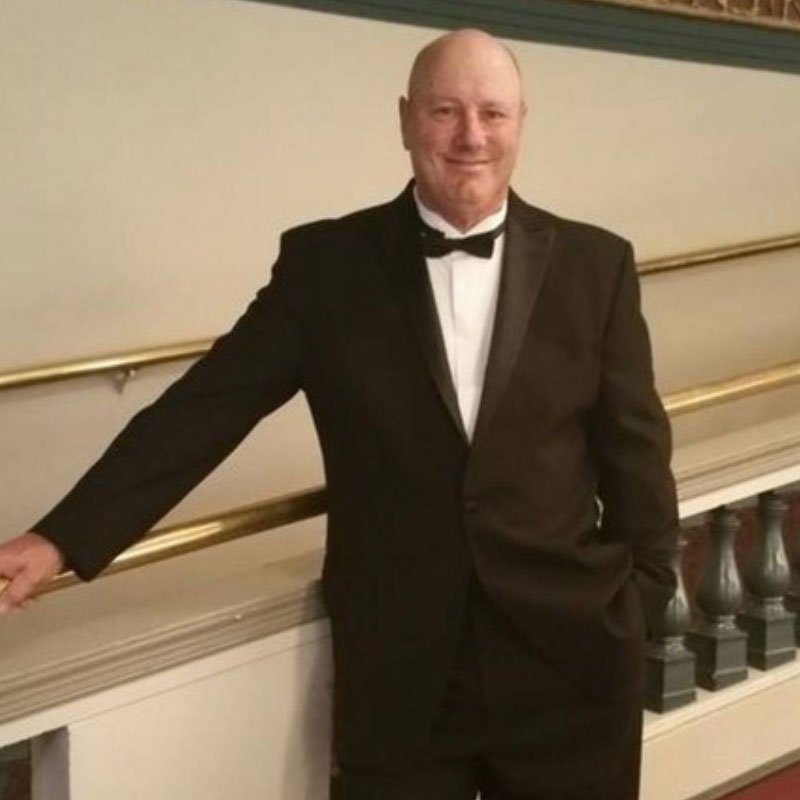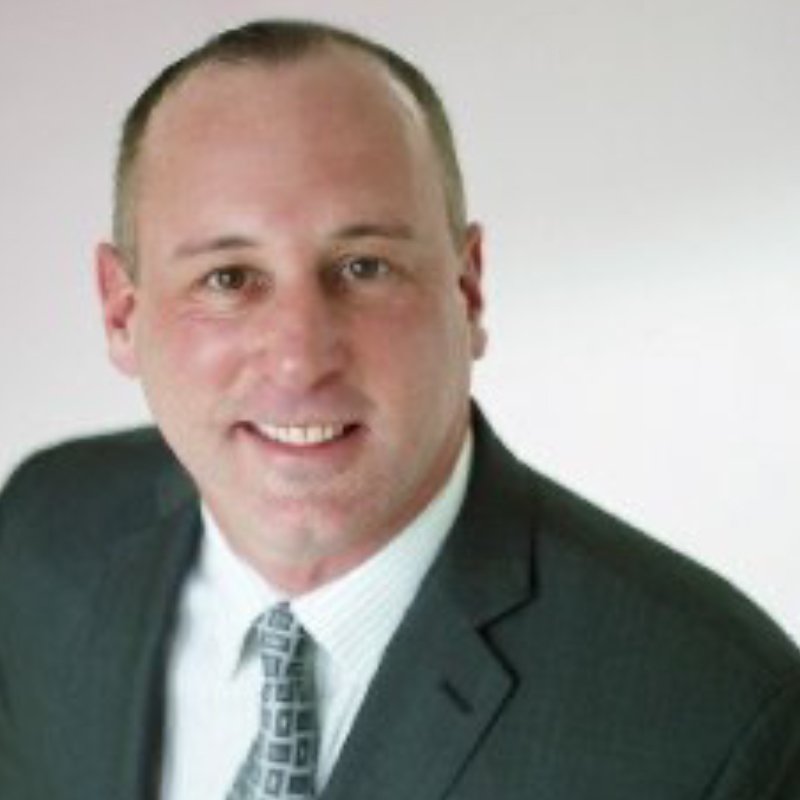#007
Share This:
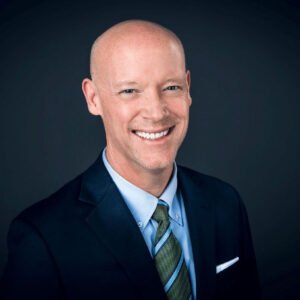
“One (issue) I see quite commonly, and that is somebody who maybe is 68, maybe 70, and they've been working this entire time and they received some bad information when they were 65 and they signed up for Medicare Part B. So to them, they have employer coverage, healthcare coverage, and evidently they've been paying their Part B premium just thinking, "Well, that's what I was supposed to do." And now they want to decide to retire. And if they decide a Medicare Supplement plan is something that they want to purchase, that can be a hindrance if they can't qualify underwriting-wise because they've gone through their open enrollment period. Six months has been basically exhausted."
-Todd Morrissey
Todd Morrissey is President of Medicare Solutions at Advisors Excel. Advisors Excel is a nationwide firm based out of Topeka. It helps independent financial professionals, advisors, and wealth managers build independent practices.
This episode will give you an insider’s view into why financial planners, wealth managers and their firms haven't typically gotten very involved in Medicare insurance coverage. But, that's changing and Todd reviews why it's very important to start planning for Medicare well before age 64, how taxes and IRMAA play a part of the equation as well as MSAs and HSAs.
Listen to the episode on Apple Podcasts, Spotify, Deezer, Podcast Addict, Stitcher, Google Podcasts, Amazon Music, Alexa Flash Briefing, iHeart, Acast or on your favorite podcast platform. You can watch the interview on YouTube here.
Brought to you by Prepare for Medicare – The Insider’s Guide book series. Sign up for the Prepare for Medicare Newsletter, an exclusive subscription-only newsletter that delivers the inside scoop to help you stay up-to-date with your Medicare insurance coverage, highlight Medicare news you can use, and reminders for important dates throughout the year. When you sign up, you’ll immediately gain access to seven FREE Medicare checklists.
Quotes:
“The other one is some people think if you're on an HSA plan and you're going to be turning 65 that you have to sign up for Part A, because it says, well, it doesn't cost you anything. Well, you don't have to sign up for Part A, because again, you can't make contributions to your HSA account if you have any part of Medicare. And unfortunately we see people make a slip up in that particular arena. But the other one that has come up, when you leave employer coverage, from a Part D standpoint, you have 63 days to make an election for your prescription drugs. It's 63 days. There's a lot of people who miss that window. And now all of a sudden if you miss that window, there's some potential penalties that they could have. We get calls a lot to say, "How can you help us?" And that's another topic that we do here that we try to help the clients and the financial advisor help his clients with.”
-Todd Morrissey
“A lot of people, I mentioned the HSAs, a lot of things with HSAs signing up for Part A; you cannot make contributions to your HSA account if you have any part of Medicare, and that's a whole other conversation to get into. But again, just another planning mechanism that advisors have with their clients.”
-Todd Morrissey
“A lot of people don't have an IRMAA charge, but there are some clients who do. And I will tell you this. When they get that notice from Social Security or Medicare that says, "Hey, this is what your Part B premiums are and your D." Sometimes it's sticker shock and they always say, "Well, why didn't you tell me about this?" That's why financial planners are there to basically help them guide them and inform them.”
-Todd Morrissey
#007
Selected Link from the Episode:
Full Show Transcript:
00:00 / 30:50
LEGAL CONDITIONS:
Matt Feret/MF Media, LLC owns the copyright all content and transcripts of The Matt Feret Show, and mattferet.com with all rights reserved, as well as right of publicity. All rights reserved.
No part of this publication may be reproduced or transmitted in any form or by any means, electronic or mechanical, including photocopying, recording, or by any information storage and retrieval system without written permission of the publisher, except for the inclusion of brief quotations in a review. You are welcome to share the below transcript (up to 500 words) in media articles, on your personal website, in a non-commercial article or blog post, and/or on a personal social media account for non-commercial purposes, if you include attribution to “The Matt Feret Show” and link back to the mattferet.com website.
WHAT IS NOT ALLOWED: No one may copy any portion of the content or use Matt Feret’s name, image or likeness for any commercial purpose or use, including without limitation inclusion in any books, e-books, book summaries or synopses, or on a commercial website or social media site (e.g., Facebook, Twitter, Instagram, etc.) that offers or promotes your or another’s products or services.
DISCLAIMER: This publication is in no way sponsored, associated, authorized, approved, endorsed nor, in any way affiliated with any government agency, company, trademarked names, or other marks. Any such mention is for purpose of reference only. Any advice, generalized statistics, or opinions expressed are strictly those of the host and the guest. This publication, The Matt Feret Show nor the mattferet.com website is meant to replace the sage advice of healthcare, insurance, financial planning, accounting, or legal professionals. You are responsible for your financial decisions. It is your sole responsibility to independently evaluate the accuracy, correctness or completeness of the content, services, and products of, and associated with this publication. The thoughts and opinions expressed in this publication are those of the host and guest(s) only and are not the thoughts and opinions of any current or former employer of the host and guest(s) nor is this publication made by, on behalf of, or endorsed or approved by any current or former employer of the host and guest(s).
Matt Feret (00:14):
Hello, everyone. This is Matt Feret and welcome to another episode of the Matt Feret Show where I interview insiders and experts to help light a path to a successful retirement. The success of the Matt Feret Show really comes down to you, the watcher and listener. That's why I'd like to take just a moment to express my gratitude. Thank you. Thanks for the five star reviews, likes, follows, and other ways you've voted with your eyes, ears, and fingers thus far. Feedback is a gift and thank you for it. If you're listening to this podcast, put a face with a voice. Don't forget, you can actually watch the Matt Feret Show on Mattferet.com and on YouTube.
Matt Feret (00:52):
If you're 62 and your financial advisor or wealth manager hasn't talked to you about Medicare planning yet, you may have a problem. Working past 65 you say? Staying on your employee health insurance policy in the meantime? You still need to be talking to a professional about your Medicare coverage right now. My guest today is Todd Morrissey, President of Medicare Solutions at Advisors Excel. Advisors Excel is a nationwide firm based out of Topeka. It helps independent financial professionals, advisors, and wealth managers build independent practices. I've known Todd for years, and as far as Medicare experts go, he's among the cream of the crop. And so when he joined that firm, I was really interested to know why.
Matt Feret (01:35):
You see, in years past, financial planners, wealth managers and their firms haven't typically gotten very involved in the client's Medicare insurance coverage. It's easy to see why. It's really complex, changes all the time, and it's a completely separate licensing testing and certification process every year. Wealth managers and financial planners typically come from a financial background and are portfolio focused, meaning they care a lot about your investments, pensions, real estate, life insurance, and a lot more.
Matt Feret (02:04):
And in order to handle a lot of this, they have to keep up with a lot of licenses and keep up with an amazing amount of material, regulation, policy guidance, and hours and hours of federal and state mandated continuing education in order just to keep up. But you simply cannot have a comprehensive retirement plan without including Medicare insurance coverage. Medicare insurance coverage is a key component of a well-rounded retirement plan and yet most advisors and firms farm it out or even ignore it all together. And with today's rising premiums and deductibles, I think that's a huge mistake. That's why I was really eager to talk to Todd about all of the obvious but also the not so obvious reasons financial planning and Medicare insurance should go hand in hand. Enjoy.
Matt Feret (02:51):
Todd, welcome to the show.
Todd Morrissey (02:53):
Thank you, Matt.
Matt Feret (02:55):
So tell everybody who you work for, what you do, and how you help people.
Todd Morrissey (03:01):
Sure. Well, let me just start out, Matt. Number one, I've known you for a long time and you and I go back a long way.
Matt Feret (03:09):
Yep.
Todd Morrissey (03:09):
I just want to comment. You have still that great silver hair, right? I know. Well that's experience [crosstalk 00:03:17]-
Matt Feret (03:17):
We're really turning this into a hair commentary.
Todd Morrissey (03:19):
No [crosstalk 00:03:20]. I had to throw that in there. I had to.
Matt Feret (03:22):
Anybody watching on video is going to notice a pretty big difference between my hair and your hair and that's what the question [crosstalk 00:03:29] were. So thanks for kicking things off like that. I appreciate it.
Todd Morrissey (03:32):
Absolutely. Absolutely. Well, first and foremost, it's an honor to be here. Thank you very much. Congratulations on your book.
Matt Feret (03:39):
Thanks.
Todd Morrissey (03:40):
Some great insight. So I have been with Advisors Excel, which I would arguably like to say is one of the largest financial advisory firms in the country. Support financial advisors around the country, but we also just started to implement Medicare. Now we're a newer division, but we implemented that about three years ago and we've seen a tremendous amount of growth. But when I came here, I had to build everything and work with our financial advisors because from a holistic planning approach, Matt, consumers nowadays are looking to talk to somebody who can help them not only with their wealth care, but with their healthcare. So that's part of what I'm doing here at Advisors Excel.
Matt Feret (04:26):
What is the difference or the connection between wealth management, financial advisory annuities, product, life insurance annuities? How is that all beginning to meld together? You mentioned it's only been recently that your firm has really gotten into the Medicare space. Yeah. What's that whole relationship like and where is it going?
Todd Morrissey (04:48):
Sure. So, you know what I would tell you? If you take five years back, a lot of the financial advisors began to look at Medicare, quite frankly, as something they didn't want to mess with. They would refer that out to somebody. But what I'm here to tell you is there's a number of them now who are embracing Medicare because look, 11,000 people turning 65 a day. They're having their clients who are coming into their office, and if I'm a financial advisor planning for somebody who's basically managing their net assets, helping them with annuities, retirement, healthcare is definitely going to be a conversation.
Todd Morrissey (05:26):
And I think a lot of them now are tired of referring that to somebody else. And they're beginning to say, "I want to be a holistic planner and do it all." And I think consumers are beginning to recognize that. Financial advisors are beginning to recognize that. But it's basically when you look at the, I guess you call it the pinwheel, whatever, from a retirement standpoint, it's taking care of all of what a client needs to look for when they go into retirement and financial planners are definitely helping clients out with Medicare.
Matt Feret (05:58):
You touched on it in your statement there. In my experience, a lot of financial planners have done historically what you just said like, "Oh, it's too specialized. I don't want to get in trouble. There's too many regs and rules around it. I have enough to do worrying about my SCC compliance checks, my Series 7, my Series 663. The last thing I need is to mess something up in Medicare." You're saying that's changing.
Todd Morrissey (06:26):
Most definitely. Now what I am seeing with a lot of financial advisors is they will focus on what they do best, that is managing people's money, helping them with income retirement. And what they do is they bring somebody into their firm that is going to be that focused, specialized Medicare individual. They call them sub-advisors. There definitely is oversight from that financial advisor, but they have to focus on certain things that take a lot of their day, and they bring somebody in that definitely is going to focus on the Medicare aspects, so that client is really getting a team approach, if you will, when they go into a financial advisor. Now there are some financial advisors, Matt, that are doing it all. And we here at Advisors Excel, what we try to do is educate and train them so they can provide the best guidance and options for their clients and it doesn't take a lot of their time.
Matt Feret (07:21):
So in your firm, it sounds like you've got wealth management or you've got financial advisors who know, and I say this tongue in cheek, enough to be dangerous about Medicare and know how important it is as part of the financial planning, but then they send it to you.
Todd Morrissey (07:38):
So what I happens is a financial advisor will come to Advisors Excel basically to do annuities, wealth management, life insurance. What we have is a team that is our annuity VPs, vice presidents, who are working with them. They talk to them about have you considered adding Medicare? And to a lot of degree, Matt, a lot of them are saying, "I'm already doing it." So that's an easy transition, but for the ones who say, "I've been getting asked about this. I need help educating myself, but not only educating myself, but educating my clients." That's when they'll take it over to my team and what we'll do is we'll handhold them, walk them through, educating the advisors so they can help their clients.
Matt Feret (08:18):
That's wonderful. What are your clients buying these days? What are the Medicare clients that you see in hear and your team works with, what are they buying?
Todd Morrissey (08:28):
Well, so I would've told you when you're working with a financial advisor and he's working with, let's say clients who for the most part maybe have some substantial assets, a Medicare supplement would have been the product or plan that the clients would've looked at. But that's not the case. Medicare Advantage plans, which we also offer, are definitely becoming attractive to a lot of the Medicare eligibles. Not only from look, my doctor's part of the network. My specialist is part of the network. All of their doctors, hospitals, are part of the network and they look at it and say to themselves, "Well, if I can save a little bit on the premiums, why not go to them?" Now also, we have a lot of advisors who do just talk to their clients about Medicare supplement. But I think from a financial advisor standpoint, they really do ask the questions and try to find out, Matt, from a standpoint of what do we think is going to be the best plan for you? It's not, "Hey, we're just going to go with one or the other." There's a conversation involved.
Matt Feret (09:36):
I point that out, not for shameless self-promotion of the book, but I do point that out in the book. Everybody has asked me for years, and probably you, "What's the best." Well, that completely depends on how much money you have, where you live, what your risk tolerance is like, what's your preferred model? I mean, I know millionaires that prefer to put the highest deductible on their car insurance that they can and drive around a 15 year old car. And I know millionaires that drive $150,000 car and have first dollar coverage. It just depends. And is that still true?
Todd Morrissey (10:09):
Yes.
Matt Feret (10:10):
Because in my mind, I feel like again, very basic kind of assertion, the more money you have, the more money you pay for Medicare supplement because you don't have the big thing of the network. But to your point, maybe that's not right.
Todd Morrissey (10:27):
Well, what I will tell you is some individuals who look at a Medicare advantage and they see what a max out of pocket is, but they say to themselves, "Well, but I'm not paying a premium every month. I can write that check for the max out of pocket." So they know they have that. But you're right. There are some clients where a financial advisor is talking to them and they say, "Look, I want to go to the doctor. I want to not have any out of pocket expense. I just want to pay my premium." Well, then a Medicare supplement is something that they would consider. So, you and I have been in doing this a long time. The adage of one size does not fit everybody is definitely true in the Medicare space.
Matt Feret (11:11):
Any niche products that they're getting into or that they're starting to ask about in it? And for example, I can think of one that's always been around the edges and that's High F, but you can't buy that anymore, as of 1/1/20, unless you're eligible for Medicare ahead of time. Now it's now it's High G. It's very low premium, but there's a big deductible. So you're kind of getting the best of both worlds in the sense that you have a high deductible, but then after that deductible, it walks, talks, acts just like a regular Medicare supplement plan. Is that a popular one? Are there many others that are becoming more popular or talked about at least?
Todd Morrissey (11:48):
Great question, and to answer directly, at least from our office we're not seeing a lot of High deductible G. I will tell you, we are seeing a little bit more from the Plan N standpoint. So for your listeners and watchers, Plan G is probably the one that a lot of people are just going to. Plan N is something from a Medicare supplement standpoint we see of financial advisors talking to their clients about.
Todd Morrissey (12:15):
But one in particular that I will mention, and that is MSAs, Medicare Savings Accounts or MSAs is the acronym. And what we're seeing are a number of people who are continuing to work past age 65 and they're used to an HSA with their employer coverage, so a MSA to them is basically something they understand. With an MSA, because it's zero premium and you don't have the networks with a MA Plan, it's kind of a hybrid if you will with a MA and basically a Medicare Advantage. But what people like about that is they're in control of their healthcare. They have the funds that they need to go to any doctor, any hospital, those kind of things, and they have those assets, and it's a $0 premium. So that's what we're seeing a little bit more in our area.
Matt Feret (13:19):
Are you hearing advisors talk about it more? Or the people have done all their work on the internet and snooped around and then they're asking for it? How much of this is talk and how much of are people are really being attracted to the MSA concept? Which by the way, and you can see this, I'll put some notes up on the website about this, but I can explain that all. And I'll put a link on the website in the show notes. But is this like what is this, or is this really a viable option at this point, do you think?
Todd Morrissey (13:47):
So, here's what I will tell you. It's gaining traction. I would've told you probably five years ago, I really didn't hear a lot about MSAs. I mean, I'd heard of them from being in the industry, but from a consumer standpoint, they maybe weren't as prevalent. Now, we tried to tell our advisors about all of the options that are out there for a consumer, and like we said, one size doesn't fit all. So we talk about all the different plans that are out there. And some of the financial advisors who maybe have high net worth clients, they find that attractive and they think their clients will find it attractive. And that's what we're seeing more of our advisors talking to some folks, and hey, we're starting to see a few more on the books. Am I going to tell you right now that it's taking off? No. But it's enough right now that I'm starting to go that's a few more than we saw last year, or that's a few more than we saw the last month. So it is beginning.
Matt Feret (14:46):
When you go through what's someone's needs, it's sales speak or needs analysis. I'm going to find out what you need and then solve your needs. But [crosstalk 00:14:56] beyond that kind of salesmanship, when you meet a client and you are trying to figure this out, what's your order of operations? Are you listening more or are you recommending, hey, first order of operations are what prescriptions? What doctors do you have? Or is it really more kind of a holistic how do you feel about Medicare and your Medicare insurance and how do you start?
Todd Morrissey (15:20):
Well, I think a lot of the financial advisors, it's a conversation with a client. And I think trying to understand where their knowledge base is. And I will tell you from a lot of what I'm hearing from our financial advisors is there's a big education that they have to do for their clients because it is confusing. Now, one of the things that I tell a lot of the financial advisors is you need to start talking about Medicare well before your client's turning 65. And here's one thing that know we see from the financial advisor standpoint, and this is not a knock on somebody who just does Medicare, Matt, but you've got to plan for this. And what I mean by that is, Matt, have you ever heard of the term IRMA?
Matt Feret (16:06):
Oh, yes. I know her.
Todd Morrissey (16:10):
It's not a cousin. It's not an old aunt. It's an income related monthly adjustment amount. Because how the IRMA is calculated is based on your modified, adjusted gross income. So as you're getting to get onto Medicare, you need to plan ahead from a income standpoint. How much is my income? And that's one thing financial advisors do. They'll talk about the tax implications. They'll talk about their income and plan for that. So I think that's one conversation they have at the get go.
Todd Morrissey (16:47):
But then when somebody does become Medicare eligible, there's how comfortable are you with a premium? How much of a premium? Are you concerned more about going to see your specialist? How many specialists you have? So you begin to get that information so you can provide the best plan, options, guidance for those clients. And a lot of people don't have an IRMA charge, but there are some clients who do. And I will tell you this. When they get that notice from Social Security or Medicare that says, "Hey, this is what your Part B premiums are and your D." Sometimes it's sticker shock and they always say, "Well, why didn't you tell me about this?" That's why financial planners are there to basically help them guide them and inform them.
Matt Feret (17:31):
IRMA looks back two years.
Todd Morrissey (17:33):
It does.
Matt Feret (17:34):
So you're right. When someone turns 65, if they're not working past 65, you really start at at 63, which means you really start at 62 or 61, don't you? So when people are thinking about moving or downsizing and selling a home and liquidating assets or moving money around, it's really important to not only begin to think about when do I do this for my lifestyle, but when do I do this because my Medicare premiums could be higher?
Todd Morrissey (18:04):
Impacted. It's timing. And that's why it's important to be talking to your financial planner about, "These are my dreams. These are what my retirement goals are. Here's when I'm planning on retirement." So they can kind of put you on a track so they know, okay, we've got all of these things to consider, all these aspects. Let's look at them and make the best feasible and financial sensed for you.
Matt Feret (18:31):
When you talk to your financial planners, when do you tell them to start talking about Medicare? What age?
Todd Morrissey (18:39):
I will tell you this. Having a conversation to allow your clients to know that when the time comes, this is something we are offering. So if you have a conversation with your 40 year old client, they probably won't be the best resonating with them. But when they start to get into their early sixties, to have that conversation with your client to say, "Now remember, we do all holistic planning from your healthcare to your wealth care, so from Medicare." But as you know, Matt, people start to get bombarded in their mailbox and telephone calls. Typically six months before they turn 65, we want our advisors to make sure their clients understand that yes, we can help guide you with those decisions, so they talk to them a little bit ahead of time, so they can just disregard when they get those phone calls and all the mailers and stuff.
Matt Feret (19:34):
Talk to me about the dance between Social Security, signing up for Medicare and working. We all know that people are working well beyond age 65 this year. I think the latest numbers I saw that were if it's 50%, maybe it's slightly above or slightly below where the people are retiring at age 65. And that means everybody's working even all the way up through into 70. So that, I mean, it complicates it. It's not just, "Well, I'm 65 and I get Medicare." No, you get Medicare Part A and then that's even an unless. So talk to me about whole dynamic of and then you have to actively sign up for Social Security when you do. I mean, what's that whole balance between working after 65, Medicare, and Social Security? Talk to talk about that.
Todd Morrissey (20:26):
So there, there is a process. Now I will tell you this. Every financial advisor might have a unique differentiate when they do this process. But as their clients are approaching, let's say age 62, that is the conversation that they start with, Social Security. Am I going to take it early? Maybe not. They explained all the positives and negatives regarding taking Social Security early. So let's say they say, "No, I'm not going to do that. I'm just going to continue and go on and continue to work, not take Social Security." Great. And mind you, they're probably still having conversations with them at 63, 64, but now 65 is coming up and, "Are you going to continue to work?" And if that individual says, "Yes, I am going to continue to work." "Okay. Well, here are your options. Part A, let's defer Part B because we don't have to take it at that time."
Todd Morrissey (21:24):
But another thing, Matt, I will throw out there, a lot of people, I may mentioned the HSAs, a lot of things with HSAs signing up for Part A, you cannot make contributions to your HSA account if you have any part of Medicare, and that's a whole nother conversation to get into. But again, just another planning mechanism that advisors have have with their clients.
Todd Morrissey (21:49):
So again, you have to understand when they're going to be retiring, talking to them. When is that date? Should I sign up for Medicare? Okay. If you do, here's where maybe we don't want to sign up for Part B. Do you have credible coverage for your prescription drugs? That's another thing. So people don't realize, or hopefully we're educating them, when you turn 65, not only are you signing up for Medicare and let's say a Medicare Advantage, but Part D, your prescription drug plan has to be a conversation as well. And when you're working all of these things, you need to take into account. And again, I don't know if I answered your question because there's so much. And again, you have to have a conversation regarding all of them and what makes the best fit.
Matt Feret (22:42):
You did. So if I'm listening or watching now and I'm trying to DIY this thing, and maybe I don't have a financial advisor. Maybe my financial advisor doesn't know anything about Medicare. So I'm trying to figure this out on my own. What are some of the common mistakes you see for people or the things that people don't realize when they're working past 65? So if someone's listening or watching goes, "You know what? I got it. I think I'm going to work until I'm 67. I know about I can defer Part B. I can defer Part D. I'll take Part A, and then I'll go elect Social Security. I'll sign up. I got it." You mentioned drug or prescription coverage. Those dates can be different. The Part B election date, how does your employer... Do you need to get a form from them? Do you need to tell them? What are some of the big, common mistakes that you see people make that they go, "Oh, I didn't realize that."?
Todd Morrissey (23:33):
Yeah. So one of them that I see quite common, and that is somebody who maybe is 68, maybe 70, and they've been working this entire time and they received some bad information when they were 65 and they signed up for Part B. So to them, they have employer coverage, healthcare coverage, and evidently they've been paying their Part B premium just thinking, "Well, that's what I was supposed to do." And now they want to make a decision to retire. And if they decide a Medicare supplement plan is something that they want to purchase, that can be a hindrance if they can't qualify underwriting wise because they've gone through their open enrollment period. Six months has been basically exhausted. So that's one.
Todd Morrissey (24:23):
The other one is some people think if you're on an HSA plan and you're going to be turning 65 that you have to sign up for Part A, because it says, well, it doesn't cost you anything. Well, you don't have to sign up for Part A, because again, you can't make contributions to your HSA account if you have any part of Medicare. And unfortunately we see people make a slip up in that particular arena. But the other one that has come up, when you leave employer coverage, from a Part D standpoint, you have 63 days to make an election for your prescription drugs. It's 63 days. There's a lot of people who miss that window. And now all of a sudden if you miss that window, there's some potential penalties that they could have. We get calls a lot to say, "How can you help us?? And that's another topic that we do here that we try to help the clients and the financial advisor help his clients with.
Matt Feret (25:36):
Right. So you said it, that last part especially, there are different times for the different parts of Medicare when you're coming off employer group insurance. You have to sign up for Part B within a certain window?
Todd Morrissey (25:49):
Yep.
Matt Feret (25:50):
And the Part D window is different.
Todd Morrissey (25:53):
It is. It is. And I wish the government would do something just as simple as it did when it came out with Part D, that's for drugs. That we can, "Oh, I can wrap my head around that." D is drugs. Everything else that they have, it's a different time period here, or it's a different period here. There's a rule here. And quite frankly, Matt, you and I have both been in this a long time. Our heart's in the right spot. All we want to do is try to help people understand what it is. And look, I'll be the first to admit there's times when I get questions from people that I will say, "Wow, that is something I don't know. I have to look that up." But at the end of the day, you want to provide your clients with the right information, just taking care of them and providing that solid information and guidance.
Matt Feret (26:41):
What's your advice for people who are looking for that guidance and don't necessarily have a financial planner and don't have an insurance agent that knows anything about Medicare? Or maybe that insurance agent goes "Well, I think I've got a Medicare supplement plan that my company sells, but I don't really do that." What's your advice?
Todd Morrissey (26:59):
You know what? I can tell you this, number one, take it upon yourself and educate yourself. There are a ton of resources. There is no lack of resources out there. Well, if you don't have access to the internet, I don't know what to tell. I mean, that [crosstalk 00:27:23] ton of things out there that you can educate yourself.
Todd Morrissey (27:26):
But also, number two, talk to some of your friends. See who their financial advisor is. Ask them. But the one thing is is interview the person that you're going to be dealing with. Talk to them. See that they have the most common goals with you so they can help you. But at the end of the day, it's kind of like when you go to buy a car. If you walk in there and just let a salesperson tell you what the price is but you're not informed, sometimes that's not the best thing. And there's no shortage of information out there. If any of our financial advisors could help you, that would be maybe an avenue. But there's a ton of places out there to get help, Matt. Hey, you know what? Can I say this?
Matt Feret (28:15):
Yeah.
Todd Morrissey (28:16):
Have them read your book. There. That's a first good start.
Matt Feret (28:19):
Thanks, man. How do people find you on the internet? How do we find out more about you?
Todd Morrissey (28:25):
Well, you can go out to Advisors Excel. Just type that in, advisorsexcel.com, and that'll bring up our company. You can read about our company. We've got, like I said, annuities that our financial advisors offer, life insurance. We have a wealth management division and of course our Medicare division. I think from that standpoint, we take care of all the spectrum that somebody's approaching when they get into retirement of what they would have a question about.
Matt Feret (28:53):
What if I don't have a ton of money? Will you guys still help me on the advisor side of the house? Or is there some minimums there? Is there a billion dollar minimum? Do I have to be Warren Buffet?
Todd Morrissey (29:02):
You do not have to be Warren Buffet. A lot of our financial advisors, they help the clients. I mean, that's what our motto is is to help clients. And look, there's a lot of people who start out and they're young or they don't have a lot of money, but they still need guidance.
Matt Feret (29:22):
Todd, that was awesome. Thanks very much for your time.
Todd Morrissey (29:25):
Listen, thank you so much, Matt. It was an honor to be here.
Matt Feret (29:27):
My thanks to Todd Morrissey for a wonderful conversation. Check out the show notes and the websites discussed during the show mattferet.com, and of course, please subscribe to the podcast on your podcast platform of choice. I'd also really appreciate if you'd subscribe to the Matt Feret Show YouTube channel, which you can get to through Mattferet.com or by searching for the Matt Feret Show on YouTube. Until next time, to your wealth, wisdom and wellness. I'm Matt Feret. Thanks for tuning in.
Matt Feret (30:01):
The Matt Feret Show, related content publications and MF Media LLC is in no way associated, endorsed or authorized by any governmental agency, including the Social Security Administration, the Department of Health and Human Services, or the Centers for Medicare and Medicaid services. The Matt Feret Show is in no way associated with authorized, approved, endorsed, nor in any way affiliated with any company, trademark names or other marks mentioned or referenced in or on the Matt Feret Show. Any such mention is for purpose of reference only. Any advice, generalized statistics or opinions expressed are strictly those of the host and guests of the Matt Feret Show. Although every has been made to ensure the contents of the Matt Feret Show and related content are correct and complete, laws and regulations change quickly and often.
Matt Feret (30:50):
The ideas and opinions expressed on the Matt Feret Show aren't meant to replace the sage advice of healthcare, insurance, financial planning, accounting, or legal professionals. You are responsible for your actual decisions. It is your sole responsibility to independently evaluate the accuracy, correctness, or completeness of the content, services and products of and associated with the Matt Feret Show, MF Media LLC, and any related content or publications. The thoughts and opinions expressed on the Matt Feret Show are those of the host and the Matt Feret Show guests only, and are not the thoughts and opinions of any current or former employer of the host or guests of the Matt Feret Show, nor is the Matt Feret Show made by, on behalf of, or endorsed or approved by any current or former employer of the host or guests of the Matt Feret Show.



